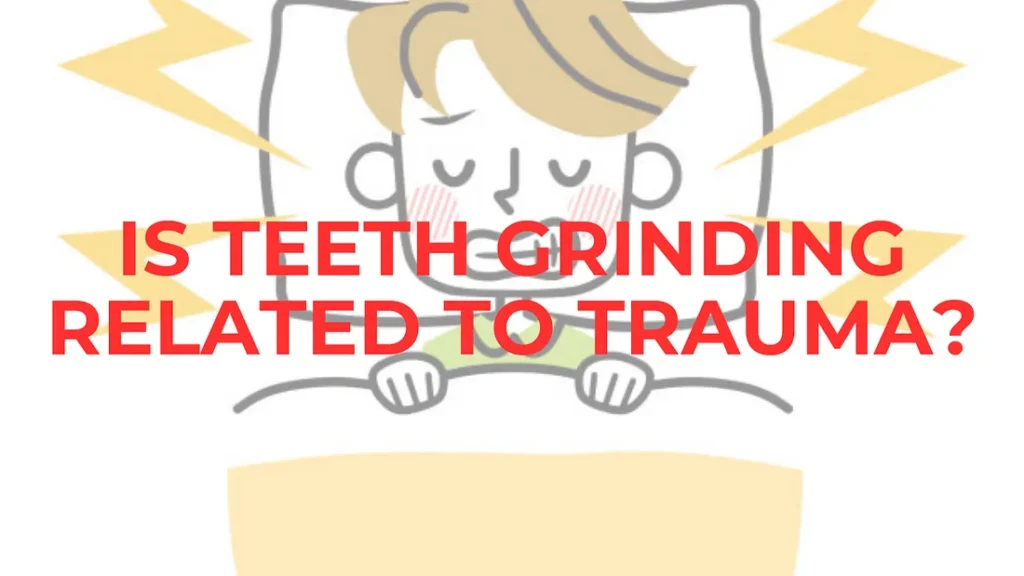Book Appointment Now
Psychology of Bruxism: Is Teeth Grinding Related to Trauma?

Today, I’d like to answer this question: Is Teeth Grinding Related to Trauma?
Learn More About Teeth Grinding and Trauma
Yes, there is. So, let’s first start by understanding all the basic concepts. Teeth grinding or clenching occurs when your jaw or your upper jaw has more tension than the lower jaw. Because of this tension imbalance, the upper jaw ends up moving up and down, leading to clenching.
How Jaw Tension Is Caused by Trauma
Now let’s consider what may cause this tension. When you experience a traumatic event, such as a breakup, an accident, or any painful experience that you do not fully process, those emotions can get stored in your body or subconscious mind as trauma. If these emotions are not processed, they manifest as tension or stress in parts of the body.
Trauma Triggers and the Fight-or-Flight Response
Later in life, when you encounter triggers related to the initial trauma, your mind enters a fight-or-flight response. This is like reliving the traumatic memory in the present moment. Your mind may have become accustomed to grinding your teeth as a way to relieve this tension or numb the traumatic memory. Therefore, whenever something reminds you of the past trauma, your teeth start grinding. This often happens unconsciously, especially during sleep, when unprocessed emotions surface and lead to teeth grinding.
The Link Between Bruxism and Unprocessed Emotions
Chronic teeth grinding can be linked to past trauma because unprocessed emotions build up tension, particularly in the upper jaw.
While this tension can manifest in other areas, such as the pelvis, when it is concentrated in the jaw, it results in teeth grinding. This grinding is the mind’s way of coping with the unprocessed trauma.
Healing Trauma to Stop Teeth Grinding
To address this, working on releasing the trauma or unprocessed emotions can reduce teeth grinding. By making peace with past events, new stressors will be viewed in the present context rather than as triggers of past trauma.
Therefore, it’s crucial to focus on trauma work before considering surgical options, as the grinding may be more related to unprocessed emotions than a medical condition.
Frequently asked questions
Is Teeth Grinding Related to Trauma?
Yes, teeth grinding can be related to trauma. Unprocessed emotions from traumatic events, like breakups or accidents, can manifest as tension in the jaw, leading to grinding, especially during sleep when these emotions surface unconsciously.
What Causes Jaw Tension in Bruxism?
Jaw tension in bruxism is often caused by unprocessed emotions stored in the body or subconscious mind from past traumatic experiences that create an imbalance, causing the upper jaw to move and clench.
Why Does Teeth Grinding Happen During Sleep?
Teeth grinding often occurs during sleep because unprocessed emotions and trauma surface unconsciously, triggering a fight-or-flight response that manifests as jaw tension and grinding.
How Do Trauma Triggers Lead to Teeth Grinding?
When you encounter triggers related to past trauma, your mind may enter a fight-or-flight response, reliving the traumatic memory. This can cause your jaw to grind as a way to cope with or numb the emotional tension.
Can Healing Trauma Stop Teeth Grinding?
Yes, addressing and releasing unprocessed trauma can reduce teeth grinding. By making peace with past events, new stressors are less likely to trigger grinding, as they’re viewed in the present context.
Should I Try Trauma Work Before Surgery for Bruxism?
Yes, focusing on trauma work is crucial before considering surgical options, as teeth grinding may be more related to unprocessed emotions than a medical condition.
Note from the Author
If you’re ready and you’d like my help with overcoming and managing maladaptive daydreaming without spending years in therapy, then you can book a FREE BREAKTHROUGH CALL with me HERE. Happy healing 💙💙. Feel free to share and comment! Use this information with caution, as it comes from my own thoughts, biases, experiences, and research. 😊






